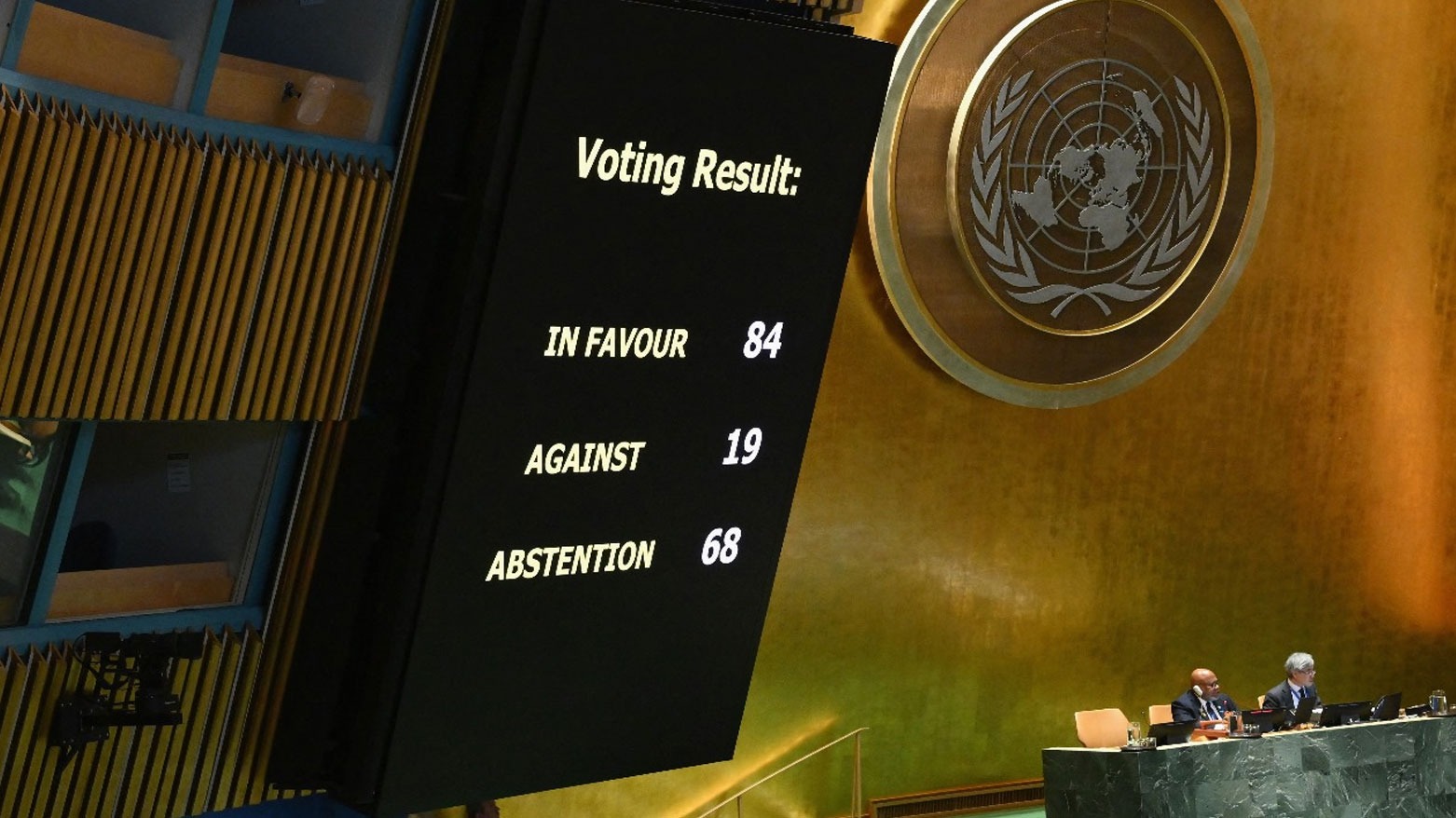UN votes to declare international day to commemorate Srebrenica massacre
The resolution, drafted by Germany and Rwanda, received 84 votes in favor, 19 against, and 68 abstentions.

ERBIL (Kurdistan24) - The UN General Assembly voted today (Thursday, May 23, 2024) to declare an international day to commemorate the Srebrenica massacre, despite opposition from Bosnian and Serbian Serbs.
The resolution, drafted by Germany and Rwanda, received 84 votes in favor, 19 against, and 68 abstentions.
According to the UN General Assembly resolution, July 11 will be designated as the "International Day of Remembrance and Commemoration of the 1995 Srebrenica Genocide."
The Srebrenica massacre, which took place between July 11 and 22, 1995, during the war in Bosnia and Herzegovina, is considered the worst massacre in Europe since World War II.
The massacre occurred in the city of Srebrenica and resulted in the killing of 8,372 Bosnian Muslims, mostly men, elderly people, and children, by military units of the Serbian Republican Army under the command of Ratko Mladić, with the participation of Serbian forces.
Bosnian Muslims and Jews commemorated the Srebrenica massacre together on Saturday, December 27, 2024, expressing solidarity and dialogue between followers of both religions amid ongoing conflicts in Gaza.
The commemoration ceremony was held in Srebrenica, where the largest genocide since the Holocaust was committed by Serbs against Muslims between 1992 and 1995.
The ceremony was organized by the Srebrenica Massacre Memorial Preservation Center.
Husein Kavazovic, head of the Islamic Diaspora in Bosnia and a Bosnian Islamic cleric serving as Grand Mufti of Bosnia and Herzegovina, stated that the aim of the commemoration was to coordinate, express solidarity, and strengthen ties between the communities, both of which have faced historical oppression and erasure.
Menachem Rosensaft, a Holocaust survivor who attended the commemoration, highlighted the shared history of oppression between Jews and Bosnian Muslims.
He noted that Bosnian Muslims had warned their Jewish neighbors of the Holocaust genocide 50 years ago and had sheltered thousands.
Similarly, Jews in Bosnia during the 1990s protected and hid thousands of Muslims, demonstrating their loyalty and solidarity.
The establishment of the International Day of Remembrance and Commemoration of the Srebrenica Genocide aims to honor the victims and promote a commitment to peace and reconciliation.